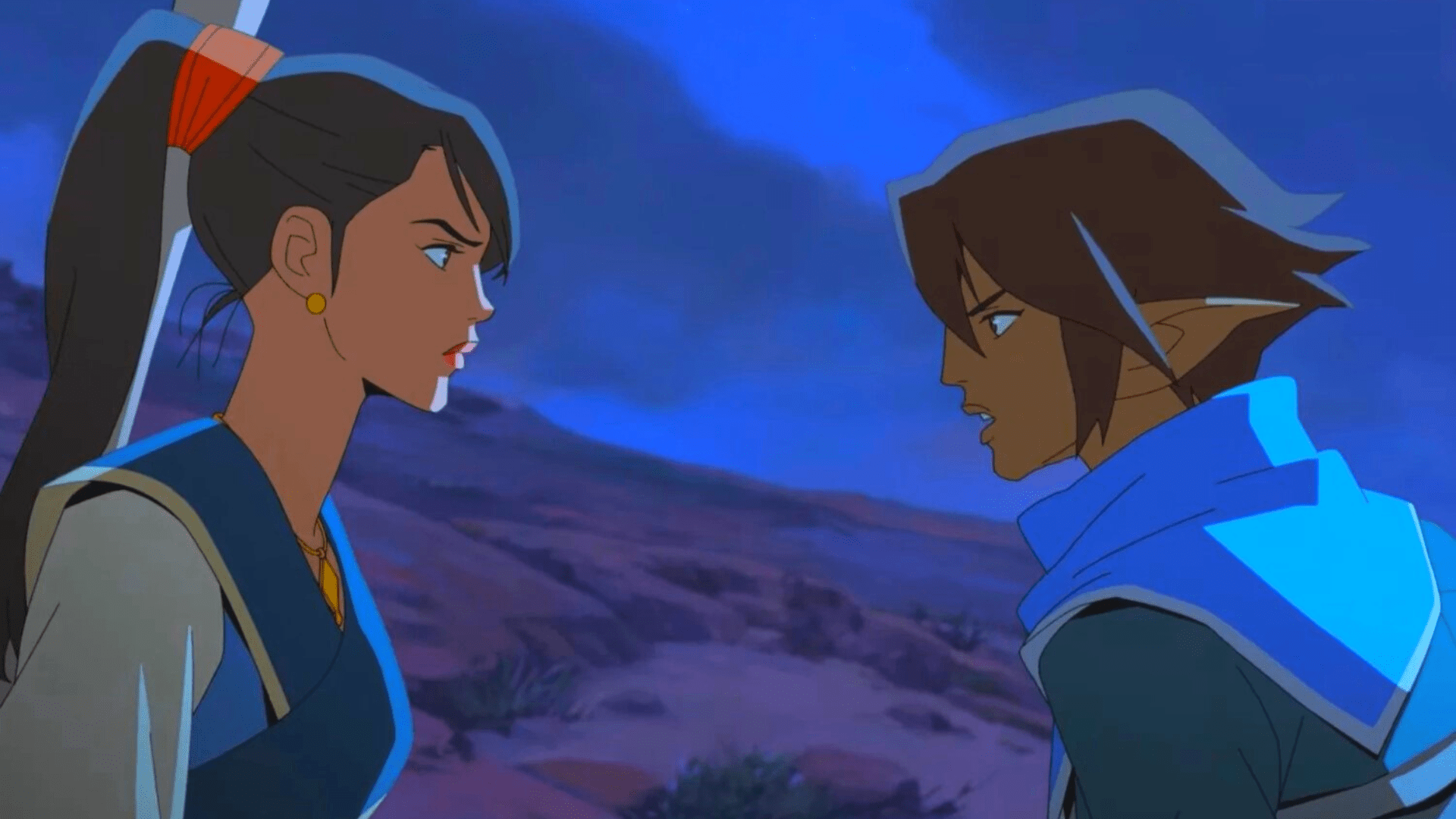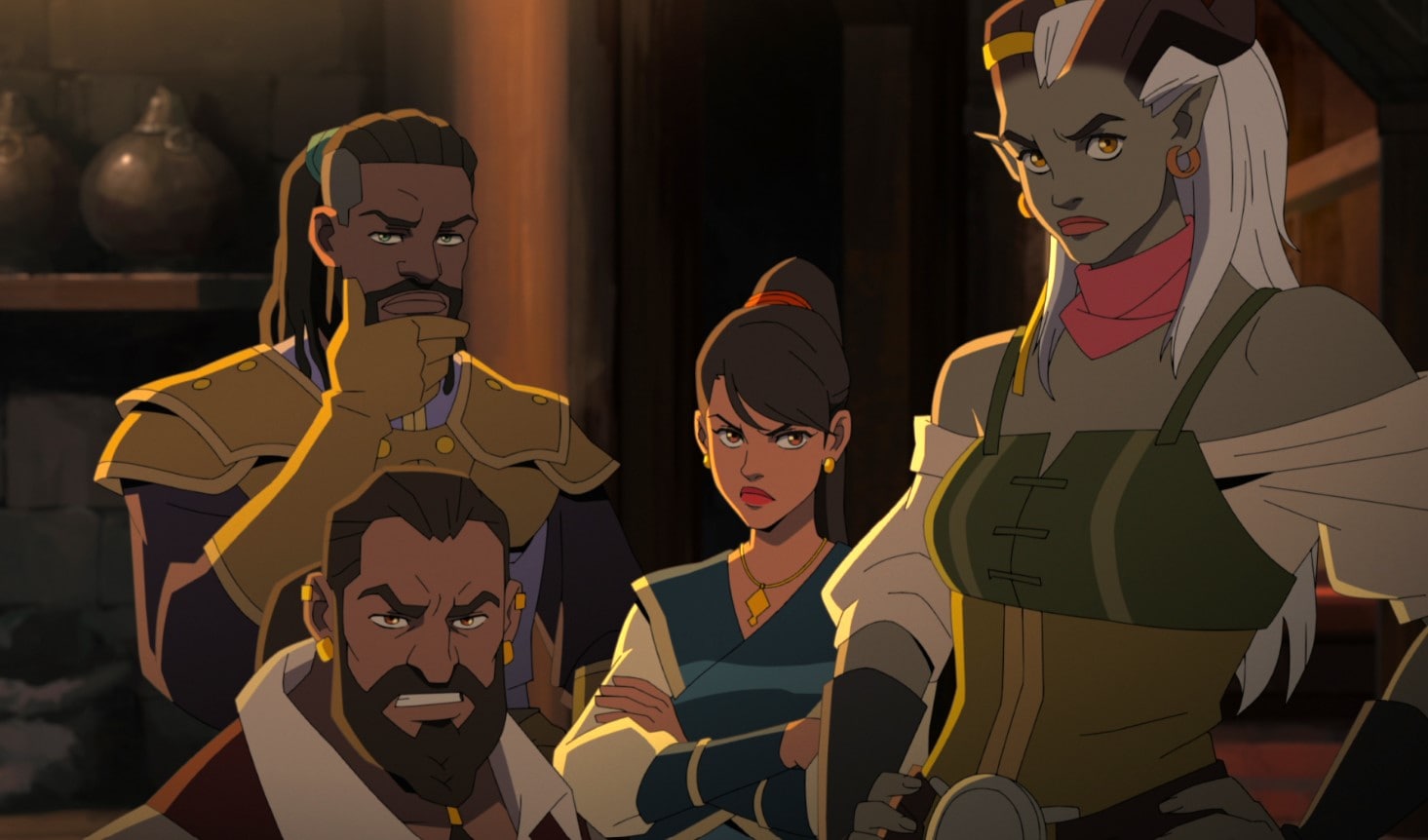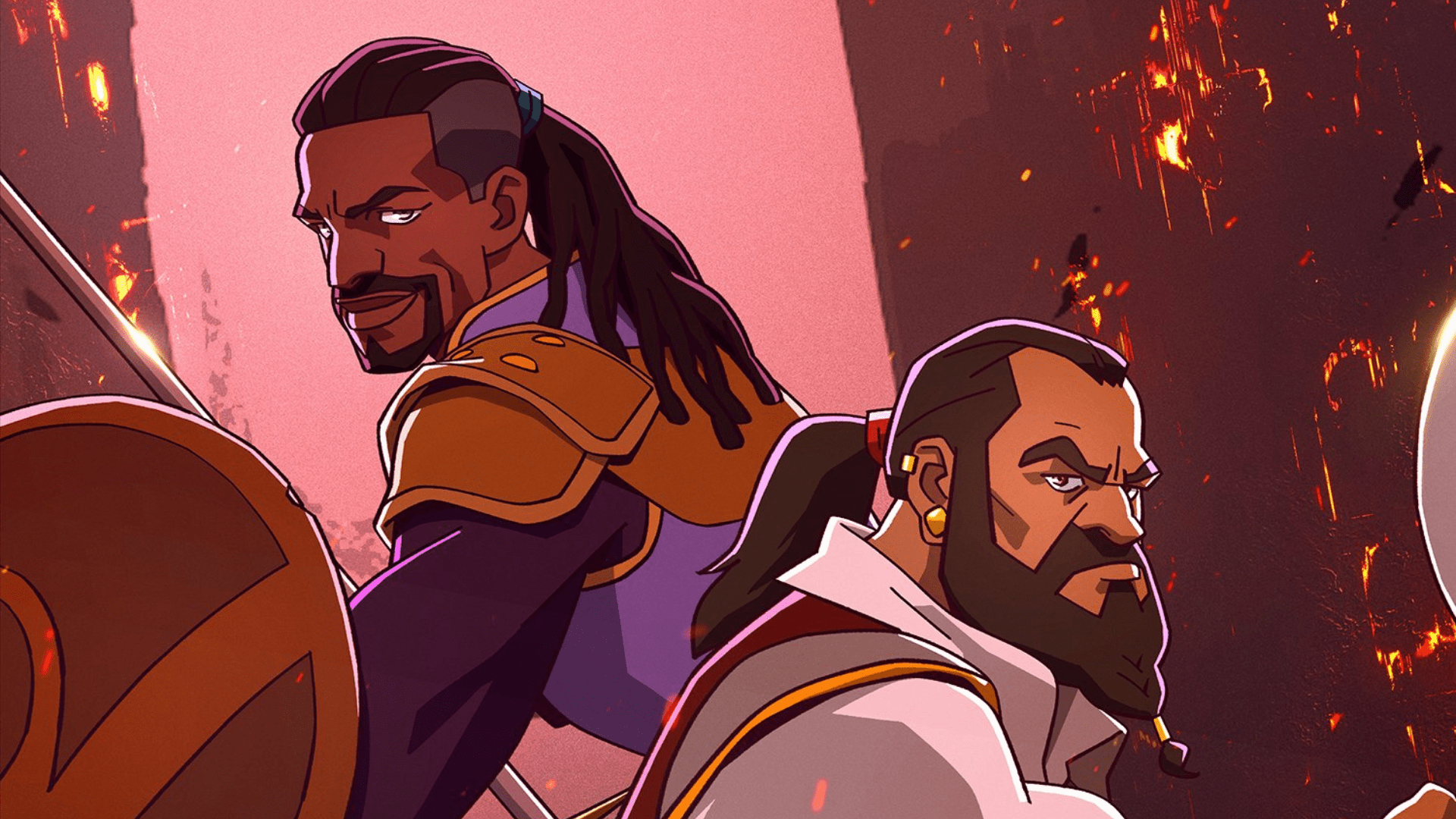
Dragon Age: Absolution Review — A must-watch before Dreadwolf
Dragon Age: Absolution is for the gays, the bisexuals, the queers, the lesbians… and well, you know, the whole LGBTQ+ community. It’s also for the very loud and adoring community that follows the Dragon Age video games, the series which the Netflix animation is based on. If you tick either one or two of those boxes then stop what you’re doing, because this is the show for you.
If you haven’t watched the show yet, then turn back: we’re heading into spoiler territory.
The 6-episode series takes place in the Tevinter Imperium, a place where, unlike the majority of other places in Thedas, magic and those that can wield it, thrive. But before we can get into the nitty and gritty of Tevinter, we’re first introduced to protagonist Miriam (Kimberly Brooks), an escaped elven Tevinter slave, and her Orlesian mercenary friend Roland (Phil LaMarr). Both of them are recruited by Inquisition agents Fairbanks (Matt Mercer) and Hira (Sumalee Montano), and are then later joined by other mercenaries like Qwydion (Ashly Burch), a Tal-Vashoth mage, and Lacklon (Keston John), a dwarf warrior.
All of these characters have come together for one reason: to conduct a heist in Tevinter and get The Circulum Infinitus – an object that, when powered by blood magic, has the ability to bring the dead back to life – for the Inquisition. Why the Inquisition wants the object outside of ‘Tevinter bad’ isn’t very clear, but as it turns out, the heist group isn’t the only one who has their eye on the Circulum Infinitus. Magister Rezaren (Josh Keaton) is eager to unlock the secrets behind the Circulum, whereas Knight-Commander Tassia (Zehra Fazel) is keen to keep it under lock and key.

The fast pacing of the animated series works both as a boon and curse. On one hand it is established very quickly what sort of story this is going to be, and what everyone’s relationships are. The fact it’s a heist plot with two very different factions involved already raises the stakes and expectations of everyone watching; will there be a betrayal, will any of our beloved heroes die, and will they get the artefact in the first place? Then there’s the character’s relationships, particularly that between Miriam and Hira. Like Miriam, Hira is from Tevinter and has been scarred by those in power, making their coupling a believable bond forged by both love and trauma. Unfortunately, we’re given very little breathing room to explore the two’s dynamic due to the break-neck speed of the plot. A shame too, because queer love is both a small, yet significant of Dragon Age: Absolution.
What I liked most about this series is how much it love it shows to its source material. The iconic weeping statues of Kirkwall, the jokes about the Hinterlands, the nods towards certain characters like Cassandra Pentaghast, Leliana and even your own character.. The Netflix show is enjoyable enough for those who haven’t played the games, but it definitely doesn’t quite hit the same. There’s not the same sort of excitement of sitting up and crying out that ‘they said the thing!’ and ‘I got the reference!’ It doesn’t mar the entire experience of course, but playing through the previous three games certainly doesn’t hinder it. I mean, that ending alone? Fans of Dragon Age 2 won (or lost, depending on your perspective) with Dragon Age: Absolution, plain and simple.
The love for the series doesn’t just shine through its easter eggs, though. While it’s very cool to see Qwydion casting Fire Wall and other useful spells players have only seen in-game, the careful, but precise detail paid to the game’s lore is enchanting. The Tevinter Imperium has always felt like a distant boogeyman, popping up occasionally whenever the games needs someone to do something particularly heinous. Now we’ve had the chance to see the rot that runs through the Imperium, the show does an excellent job in depicting just how the violence and trauma of slavery has not only affected Miriam, but is also something that’s completely untouchable for other characters born to the Imperium, such as Hira and Rezaren.

Even with the plot being mostly focused around the theft of the Circulum Infinitus, what makes Dragon Age: Absolution so compelling is the fragile, tattered relationship between Rezaren, Miriam and her brother, Neb. Rezaren is a fascinating character due to his desire to bring Neb back to life being rooted in a privileged upbringing that doesn’t take into account the experiences of both Miriam and Neb. As the son of a well-established Magister, Rezaren is expected to not only be a brilliant mage, but one of the best. Instead Rezaren spends his childhood days with Miriam and Neb, elven slaves, which on the surface isn’t a terrible thing. However, while Rezaren spending time with them is easy as breathing for him, both Miriam and Neb are considered tools and playthings to anyone else looking in. They are slapped, kicked and abused. Rezaren constantly justifies himself as different because, despite how badly his mother treated the two elves, he saw them as his only connection in a society that values power over humanity and for him? That’s all that matters.
While Rezaren says he sees Miriam and Neb as his siblings, the animated series kicks that narrative to the curb again and again. Miriam and Neb are both marked with Rezaren’s brand on their face, the latter is used to stop Rezaren from transforming into a demon, and then later puppeteered as a tool to protect the Magister from enemies. Miriam is forced to become an assassin to keep the Magister’s family alive and well. Despite the framing of them all being a ‘happy, loving family of siblings’, Dragon Age: Absolution takes a swift detour from the usual trappings of the video game series and refuses to take a centrist point-of-view. Yes Rezaren is given some sympathetic traits, but ultimately Miriam takes back control of his delusional mindset to convey the truth to not just her fellow companions, but the audience. It’s nothing short of fantastic.
Dragon Age: Absolution is a must-watch for fans, and not just because of that ending which will have Dragon Age 2 fans loudly weeping. With Dragon Age: Dreadwolf taking place in Tevinter, and the possibility that we’ll see characters established in this series again as companions if not NPCs, these 6-episodes does a great job in showcasing the environment, society and other challenges players will no doubt be up against when the game releases.
That and well, who can say no to more Dragon Age?
Dragon Age: Absolution is available to watch now on Netflix.





